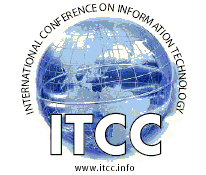|
Track
Chair
Sheikh Iqbal Ahamed,
Dept of Math, Stat and Comp Sc
Marquette University
PO Box 1881
Milwaukee, WI 53201-1881
USA
Phone:
414-288-5222
Fax:
414-288-5472
Email:
iq@mscs.mu.edu
Program
Committee
Raquel
Hill,
University
of Illinois at Urbana-Champaign, USA
Gour
Karmakar,
Monash
University, Australia
Mujtaba
Khambatti,
Microsoft Corporation, USA
Gopi Kolli
Intel
Corporation, USA
Kiran
Mudiam,
University Of
Phoenix, USA
Daniela Nicklas,
University of
Stuttgart, Germany
Shivakumar Sastry,
University
of Akron, USA
Renee Turban
Arizona State
University, USA
Miroslav Velev,
Reservoir
Labs,
USA
Wang Yu,
Auburn University,
USA
Mohammad Zulkernine,
Queens
University, Canada
|
Description:
Pervasive
computing has evolved during the last few years due to recent
developments in portable low-cost light-weight devices and
emergent
short range, and low-power wireless communication networks.
Pervasive computing environments focus on integrating
computing and
communications with the surrounding physical environment of
day by
day lives to making computing and communication transparent to
the
users. In pervasive computing, numerous,
casually accessible,
often invisible, frequently mobile or embedded devices are connected
to an increasingly pervasive network structure and collect
information about the surrounding environment of pervasive computing
using sensors. Pervasive computing enlarges the usability of
computers by allowing low powered mobile devices to query the
database over the wireless network, but also raises some demanding
challenges such as slow expensive connections, frequent line
disconnection, limited host bandwidth, location dependent data, etc.
Pervasive computing are required in different applications, such as
hospitals, smart classroom, construction sites, stadiums, shopping
malls, emergency services, convention centers, battlefields, and
inhospitable physical environments etc.
Topics:
Topics of interest include, but are not limited to
-
Context-aware computing
-
Smart
devices and smart spaces
-
Evaluation of pervasive computing applications
-
Database
for pervasive computing
- Location aware pervasive
computing
- Resource aware pervasive
computing
- Security in pervasive
computing
- Pervasive computing
architectures
- Sensors and actuators
- User interfaces for pervasive
computing devices
- Wireless and mobile service
management and delivery
- Ad hoc networking protocols
and service discovery
- Middleware for pervasive
computing applications
- Personal area networks
- Education using pervasive
computing and technologies
- Service discovery mechanisms
Paper
Submission:
Papers
should be original and contain contributions of theoretical or
experimental nature, or be unique experience reports. Interested
authors should submit a 6-page summary of their original and unpublished
work including 5 keywords in the IEEE format to the track chair.
Electronic submission in the PDF or Word format is strongly encouraged.
For instructions on electronic submissions, Click
here (Select Track Area: Pervasive
Computing).
Evaluation
Process:
Papers
will be evaluated for originality, significance, clarity, and
soundness. Per ITCC policy, except for invited papers, all papers
will be reviewed by at least two independent reviewers. Accepted
papers will be published in the conference proceedings with an
ISBN. Selected track papers presented in the conference will be
considered for publication in a special issue of an international
journal.
Best
Student Paper:
The
Best Student Paper will be awarded at the conference. To be eligible,
the student must be the sole author of the paper, or the first
author and primary contributor. (The winner of the award will
present the paper in a plenary session at the conference). A cover
letter to the General Chair/Track Chair must identify the paper
as a candidate for this competition at the time of submission.
Deadlines:
Full
paper due: November 29, 2004 (new
deadline!)
Acceptance notification: December 29, 2004
Camera-ready
paper (6 pages) due: January 14, 2005
|
|
|

